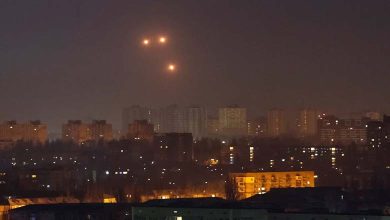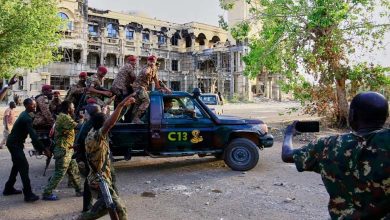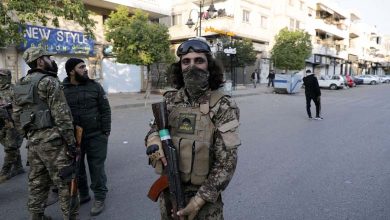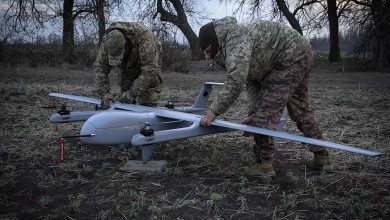Running away from the Taliban… Afghans try to cross Afghanistan’s borders
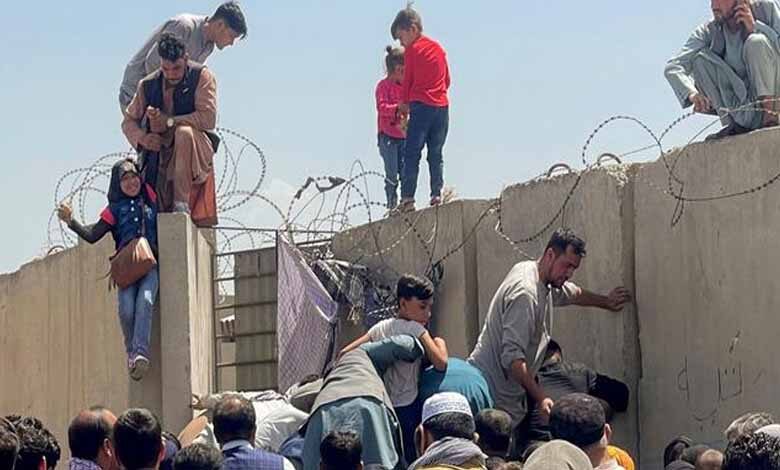
Hard choices awaited Afghan ”Hussein” as he saw the last evacuation plane leaving Kabul airport and unable to reach it.
As the last US soldier prepared to depart from Afghanistan, Hussein, a US passport holder working for the US military, and his six daughters walked through Taliban security checkpoints to the gates of Kabul airport for several days in the hope of catching a flight to safety.
For days, Hussein had been calling and emailing the US Embassy, but no answer came. Then a US soldier called to inform him that his only chance of getting on a plane was to be alone without his daughters, who were not American citizens.
Hussein’s wife died of COVID-19 in July and his departure alone meant his daughters were abandoned.
On Monday evening, family members stood in the crowd outside Kabul airport and heard the whirlwind whistle of the last US C-17 as it took off from the two-decade-old US military intervention in Afghanistan.
Hussein told Reuters he was now one of an unknown number of people in Afghanistan considering a high-risk road trip.
Hussein, who asked that the rest of his name be hidden for security reasons, added: “I hear from the news and relatives that thousands are waiting at Afghanistan’s border with Pakistan and trying to get in.”
“I don’t know, should I go to Tajikistan?”, expressing concern about his ability to care for his daughters on the road if he decides to go.
With US forces gone and evacuation and commercial flights halted from Kabul airport, which has no air traffic control crew, special efforts to rescue thousands of Afghans whose reassuring security assurances from the Taliban were not aired focused on arranging safe passage of Afghanistan’s land borders as they do not overlook seas.
It may be days or weeks before negotiations are complete between the Taliban, Qatar and Turkey on how to manage the airport.
Participants in a special evacuation effort who requested anonymity for security reasons say many have begun the journey to Pakistan, heading east and south, while others are trying to reach Afghanistan’s borders with Central Asian countries.
Travelers pass through Taliban checkpoints along hundreds of kilometers of rough roads, traveling in private cars, public buses and minibuses. “These journeys are particularly dangerous for former military and security officers and government officials.”
“There are barriers all over the country right now,” said a former US official who belongs to informal networks that have helped US citizens, green card holders and vulnerable Afghans avoid chaos around Hamid Karzai International Airport and catch evacuation planes.
The UN Refugee Agency (UNHCR) said up to half a million Afghans could flee their homeland by the end of the year.
The only option
More than 122,000 people, including about 6,000 Americans, were airlifted from Kabul since Aug. 14, the day before the Taliban overran the capital.
US Secretary of State Antony Blinken vowed Monday to “relentlessly pursue” efforts to help the nearly 200 Americans still in the country and vulnerable Afghans leave.
Tens of thousands of Afghans who have worked for the US government and applied for special immigration visas remain in the country and many others are at risk.
The Department of State published a declaration by some 100 countries showing their commitment to helping Afghans reach destinations outside Afghanistan. None of Afghanistan’s neighbors signed the statement.
Tajikistan has pledged to accept 100,000 Afghan refugees while Uzbekistan has committed to allowing transit through its territory for Americans and perhaps others. But it remains unclear how many countries have allowed them in.
Pakistan, home to more than 1.4 million Afghan refugees, has allowed some 2,000 Afghans working for foreign missions, international institutions and NGOs to enter on temporary visas for one month, a diplomatic source said on condition of anonymity.
However, a former United States official stated that since the completion of the United States evacuations from Kabul airport, the Taliban had erected security barriers on the main road north to Uzbekistan and Tajikistan. The armed men of the movement prevent women from traveling without family escorts.
Some private groups who help Afghans escape said they advise people not to try to reach the country’s borders unless they know the Taliban are after them.




